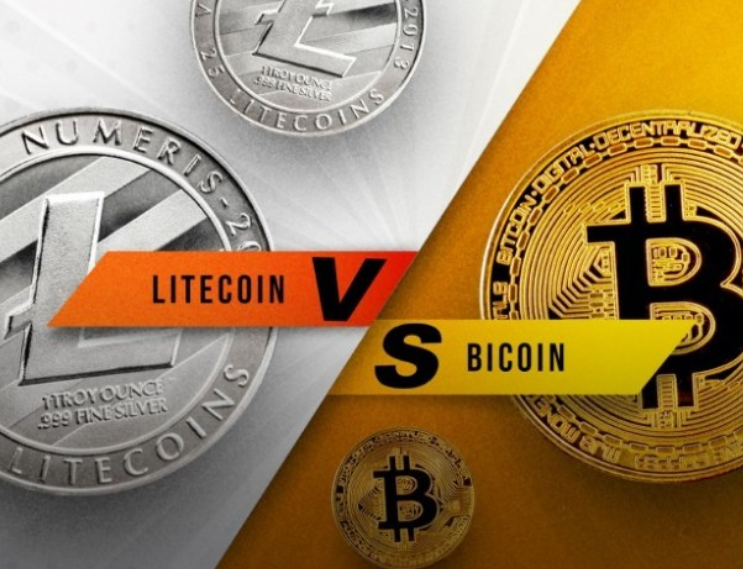bbc.towzdog.com – Litecoin vs Bitcoin Cash: A Comprehensive Comparison In the realm of cryptocurrencies, two names that often come up in discussions are Litecoin (LTC) and Bitcoin Cash (BCH). Both are prominent alternatives to Bitcoin, aiming to enhance the usability and scalability of digital currencies. This article delves deep into the Litecoin vs Bitcoin Cash debate, examining their histories, technical features, use cases, and market performance to help you understand which cryptocurrency might be right for you.
Understanding Litecoin and Bitcoin Cash
What is Litecoin?
Litecoin was created in 2011 by Charlie Lee, a former Google engineer, as a “lite” version of Bitcoin. Its primary purpose is to facilitate fast and low-cost transactions. Litecoin aims to improve upon Bitcoin’s core technology while maintaining similar principles. It uses a different hashing algorithm called Scrypt, which makes it less resource-intensive than Bitcoin’s SHA-256 algorithm.
What is Bitcoin Cash?
Bitcoin Cash emerged in August 2017 as a result of a hard fork from Bitcoin. The primary goal of Bitcoin Cash was to address Bitcoin’s scalability issues by increasing the block size limit from 1 MB to 8 MB (later raised to 32 MB). This adjustment was intended to allow more transactions to be processed in each block, thereby reducing fees and improving transaction speeds during high traffic periods.
Key Differences Between Litecoin and Bitcoin Cash
1. Transaction Speed and Fees
Litecoin is known for its faster transaction times, with blocks being generated approximately every 2.5 minutes, compared to Bitcoin’s 10-minute block generation time. This speed allows Litecoin to process transactions more quickly and at a lower cost, making it more suitable for everyday transactions.
Bitcoin Cash, while also focusing on transaction speed, achieves its goals through increased block size. This allows it to handle a larger volume of transactions, which can reduce fees during times of high demand. However, the actual transaction speed can vary depending on network congestion.
2. Hashing Algorithms
The different hashing algorithms used by Litecoin and Bitcoin Cash contribute to their unique characteristics. Litecoin employs Scrypt, which requires less computational power, allowing for more decentralized mining. This makes it accessible to a broader audience of miners.
On the other hand, Bitcoin Cash uses the same SHA-256 algorithm as Bitcoin. This means that miners who already mine Bitcoin can easily switch to Bitcoin Cash, potentially leading to higher mining centralization.
3. Supply Limit and Inflation
Both Litecoin and Bitcoin Cash have a supply limit, but they differ in their issuance schedules. Litecoin has a maximum supply of 84 million LTC, which is four times that of Bitcoin. This larger supply is intended to ensure that Litecoin remains affordable for everyday transactions.
Bitcoin Cash, like Bitcoin, has a maximum supply of 21 million BCH. The focus on maintaining a limited supply aligns with Bitcoin’s original vision of scarcity, making both Bitcoin and Bitcoin Cash deflationary currencies.
4. Community and Development
Both Litecoin and Bitcoin Cash have active communities and development teams. Litecoin has been known for its focus on innovation, with the introduction of features like Lightning Network integration to facilitate instant transactions.
Bitcoin Cash, on the other hand, emphasizes its commitment to being a true peer-to-peer electronic cash system. Its community is focused on increasing adoption for everyday transactions, and it has implemented features aimed at enhancing usability, such as a simple payment verification (SPV) model.
Current Market Performance
Market Capitalization
As of November 2024, here are the current statistics for Litecoin and Bitcoin Cash:
- Litecoin (LTC)
- Market Capitalization: Approximately $6 billion
- Current Price: Around $80 per LTC
- Circulating Supply: About 75 million LTC
- Bitcoin Cash (BCH)
- Market Capitalization: Approximately $4 billion
- Current Price: Around $200 per BCH
- Circulating Supply: About 19 million BCH
Historical Price Trends
Litecoin and Bitcoin Cash have experienced significant volatility since their inception. Litecoin reached its all-time high of around $400 in December 2017 but has since fluctuated as the market has matured. Bitcoin Cash, following its fork from Bitcoin, saw substantial growth, peaking at approximately $4,000 shortly after its launch before experiencing dramatic fluctuations.
Use Cases and Adoption
1. Litecoin in Daily Transactions
Litecoin’s faster transaction times and lower fees make it an attractive option for everyday transactions. Many merchants accept Litecoin as a payment method, and it has gained traction in areas where quick transactions are essential, such as point-of-sale systems.
2. Bitcoin Cash as Peer-to-Peer Cash
Bitcoin Cash was explicitly designed to facilitate peer-to-peer transactions. Its larger block size allows for higher transaction throughput, making it a viable option for microtransactions and everyday purchases. The Bitcoin Cash community actively promotes its use in real-world transactions.
3. Investment and Speculation
Both Litecoin and Bitcoin Cash are popular among investors and speculators. Many see them as alternatives to Bitcoin, particularly for those who want exposure to digital currencies with different characteristics and use cases.
Advantages and Disadvantages
Advantages of Litecoin
- Faster Transactions: With a quicker block generation time, Litecoin transactions are typically confirmed faster than Bitcoin and Bitcoin Cash transactions.
- Lower Fees: Transaction fees on the Litecoin network are often lower, making it a practical choice for small transactions.
Disadvantages of Litecoin
- Less Adoption: While Litecoin is widely accepted, it does not have the same level of adoption as Bitcoin or Bitcoin Cash.
- Perceived as Less Innovative: Some critics argue that Litecoin lacks unique features compared to newer cryptocurrencies, which may limit its long-term appeal.
Advantages of Bitcoin Cash
- Increased Block Size: The larger block size allows for more transactions per block, reducing fees during peak usage times.
- Active Development: Bitcoin Cash has a strong focus on being a medium of exchange, with ongoing efforts to improve usability and transaction efficiency.
Disadvantages of Bitcoin Cash
- Centralization Concerns: The use of SHA-256 may lead to increased mining centralization, as larger mining pools dominate the network.
- Volatility: Like all cryptocurrencies, Bitcoin Cash is subject to significant price fluctuations, which can deter potential users and investors.
Conclusion: Which is Better?
When comparing Litecoin vs Bitcoin Cash, the “better” option depends on your specific needs and goals. If you’re looking for a cryptocurrency that offers faster transaction times and lower fees, Litecoin may be the right choice for you. However, if you prioritize larger transaction capacities and a community dedicated to peer-to-peer electronic cash, Bitcoin Cash might be more appealing.
Both cryptocurrencies have unique strengths and challenges, and their roles in the broader cryptocurrency ecosystem continue to evolve. As the market matures, ongoing developments in both Litecoin and Bitcoin Cash will shape their futures and influence their adoption.
For more insights into cryptocurrency trends and updates, you can visit CoinMarketCap for the latest information.
Final Thoughts
Understanding the differences between Litecoin and Bitcoin Cash is essential for anyone interested in the cryptocurrency space. Both offer unique features that cater to different user needs, and as the market continues to evolve, staying informed will help you make better investment and usage decisions.




